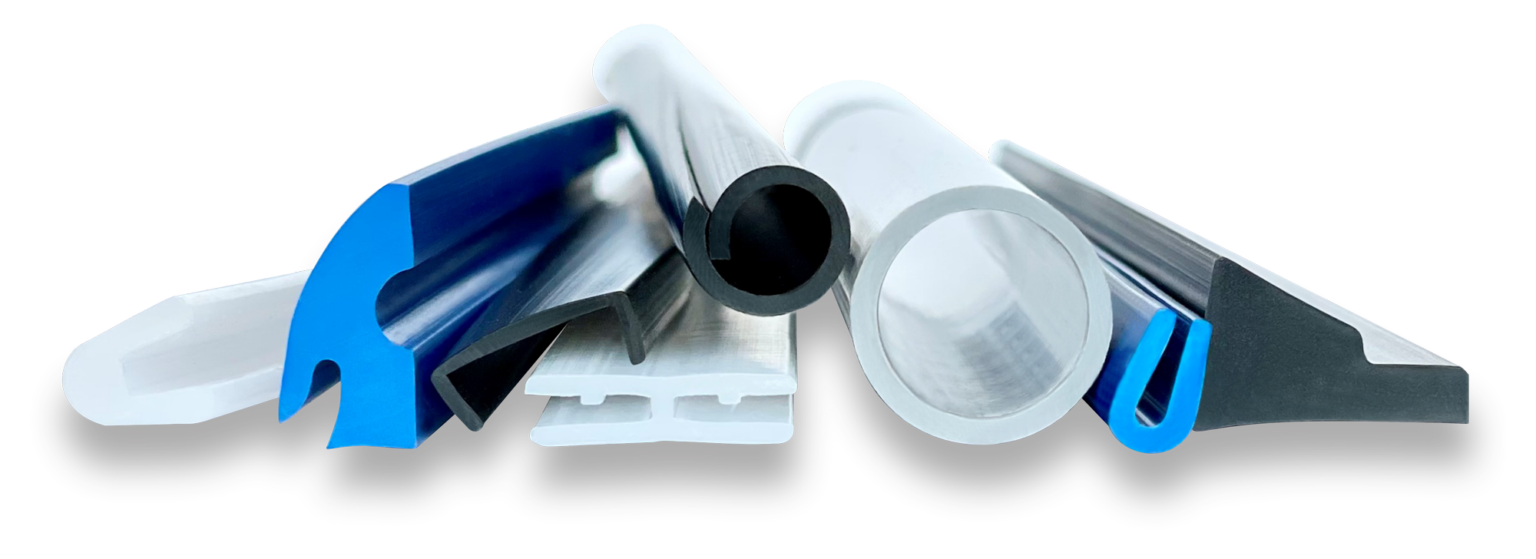A Comprehensive Overview to the Process and Benefits of Plastic Extrusion
In the vast world of manufacturing, plastic extrusion emerges as a extremely reliable and vital process. Altering raw plastic right into continuous profiles, it provides to a huge selection of sectors with its impressive versatility. This overview intends to clarify the elaborate actions entailed in this technique, the kinds of plastic proper for extrusion, and the game-changing advantages it brings to the market. The occurring discussion promises to unfold the real-world influences of this transformative procedure.
Understanding the Basics of Plastic Extrusion
While it might show up complicated at initial glimpse, the procedure of plastic extrusion is fundamentally straightforward. The process begins with the feeding of plastic material, in the kind of powders, granules, or pellets, right into a heated barrel. The shaped plastic is after that cooled, strengthened, and reduced into preferred lengths, completing the procedure.
The Technical Process of Plastic Extrusion Explained

Types of Plastic Suitable for Extrusion
The selection of the appropriate type of plastic is a crucial element of the extrusion process. Numerous plastics use unique properties, making them extra suited to certain applications. Polyethylene, for instance, is generally used because of its reduced expense and easy formability. It provides excellent resistance to chemicals and wetness, making it perfect for items like tubing and containers. Likewise, polypropylene is an additional prominent selection as a result of its high melting factor and resistance to fatigue. For even more robust applications, polystyrene and PVC (polyvinyl chloride) are commonly chosen for their stamina and resilience. Although these are usual options, the option eventually relies on the particular demands of the product being produced. So, comprehending these plastic kinds can substantially boost the extrusion process.
Contrasting Plastic Extrusion to Various Other Plastic Forming Approaches
Comprehending the kinds of plastic ideal for extrusion leads the method for a wider conversation on exactly how plastic extrusion stacks up versus various other plastic developing techniques. Plastic extrusion is unequaled when it comes to developing constant accounts, such as seals, pipes, and gaskets. It also enables for a consistent cross-section along the length of the product.
Trick Advantages of Plastic Extrusion in Manufacturing
In the realm of production, plastic extrusion offers many considerable advantages. One notable advantage is the cost-effectiveness of the process, which makes it a financially attractive manufacturing technique. In addition, this technique offers remarkable product adaptability and enhanced manufacturing rate, thereby boosting general from this source manufacturing efficiency.
Economical Manufacturing Method
Plastic extrusion jumps to this post the center as an economical manufacturing technique in production. This process attracts attention for its capability to produce high quantities of material rapidly and efficiently, giving makers with significant cost savings. The primary expense benefit is the ability to make use of cheaper raw products. Extrusion utilizes thermoplastic products, which are less costly contrasted to ceramics or steels. Further, the extrusion procedure itself is fairly basic, decreasing labor costs. Furthermore, plastic extrusion calls for less energy than typical production techniques, adding to lower functional expenses. The process also lessens waste, as any excess or malfunctioning products can be reused and recycled, giving one more layer of cost-effectiveness. In general, the economic benefits make plastic extrusion a very appealing choice in the production sector.

Superior Product Adaptability
Beyond the cost-effectiveness of plastic extrusion, one more considerable benefit in producing lies in its remarkable product flexibility. This makes plastic extrusion a perfect remedy for industries that need customized plastic components, such as auto, building, and product packaging. In essence, plastic extrusion's item adaptability cultivates development while boosting functional performance.
Enhanced Manufacturing Rate
A substantial advantage continue reading this of plastic extrusion lies in its enhanced manufacturing rate. Few other manufacturing procedures can match the speed of plastic extrusion. In addition, the capacity to maintain consistent high-speed manufacturing without compromising item high quality sets plastic extrusion apart from various other techniques.
Real-world Applications and Influences of Plastic Extrusion
In the realm of production, the strategy of plastic extrusion holds profound relevance. The financial advantage of plastic extrusion, mainly its high-volume and economical result, has actually transformed production. The market is constantly striving for innovations in recyclable and biodegradable materials, indicating a future where the benefits of plastic extrusion can be preserved without compromising ecological sustainability.
Verdict
To conclude, plastic extrusion is a extremely reliable and efficient approach of transforming raw materials into varied products. It provides numerous benefits over other plastic developing approaches, including cost-effectiveness, high output, very little waste, and style versatility. Its influence is greatly really felt in various industries such as building and construction, automobile, and durable goods, making it an essential procedure in today's manufacturing landscape.
Delving much deeper into the technological process of plastic extrusion, it starts with the selection of the suitable plastic material. When cooled down, the plastic is reduced into the required sizes or injury onto reels if the item is a plastic film or sheet - plastic extrusion. Contrasting Plastic Extrusion to Other Plastic Forming Methods
Recognizing the kinds of plastic suitable for extrusion leads the means for a more comprehensive discussion on how plastic extrusion stacks up versus other plastic developing approaches. Couple of other production procedures can match the rate of plastic extrusion.